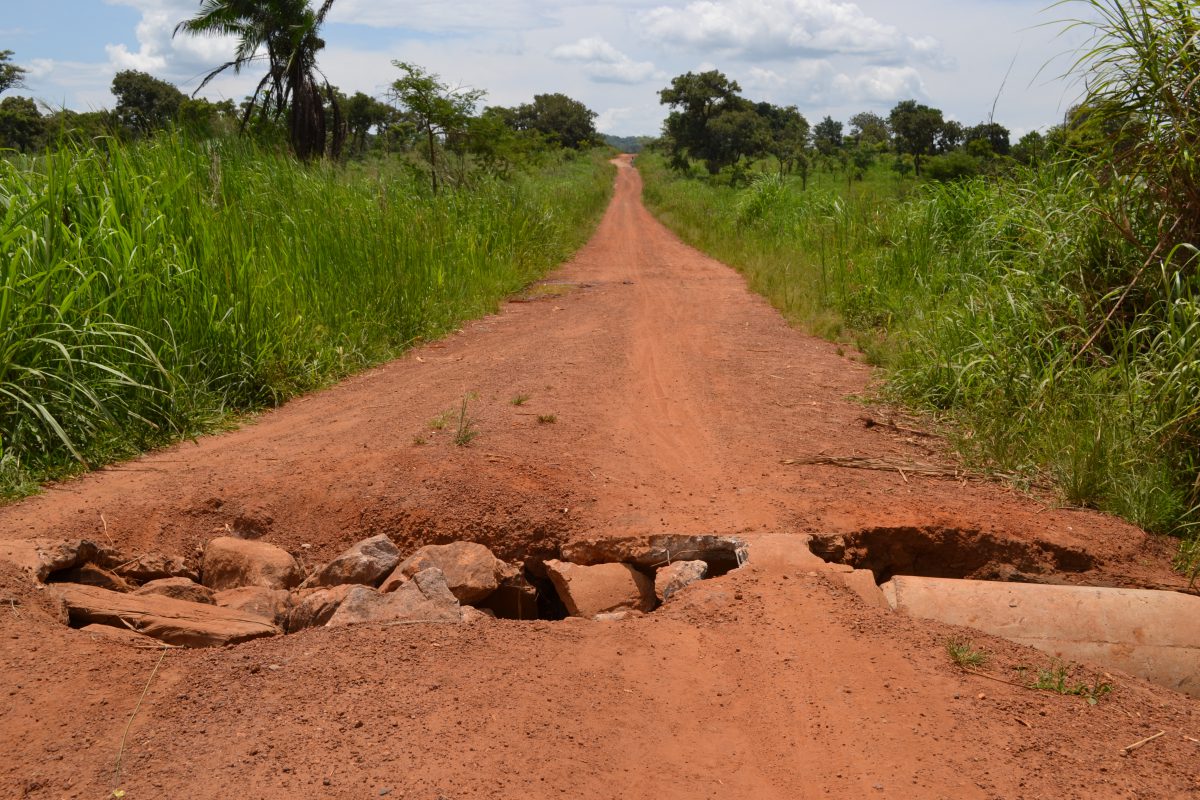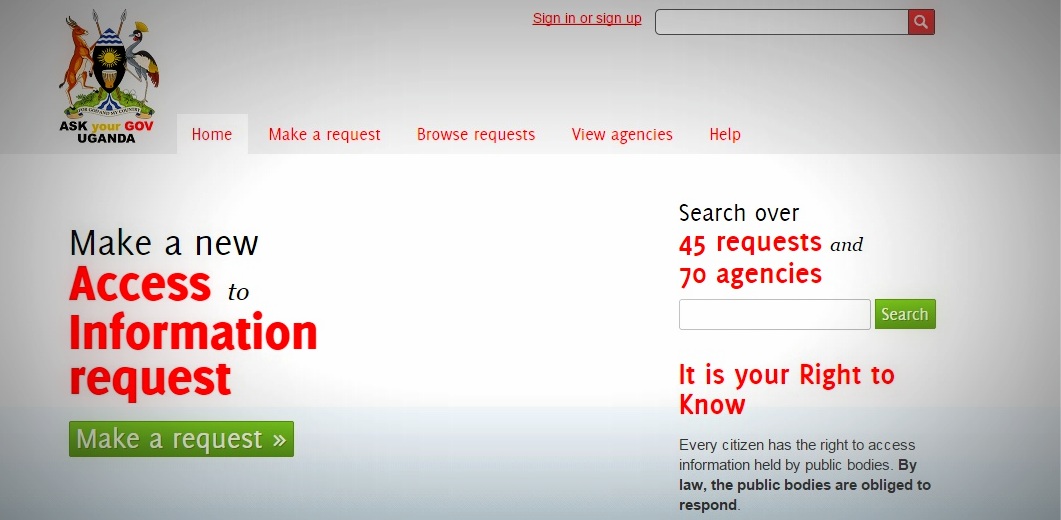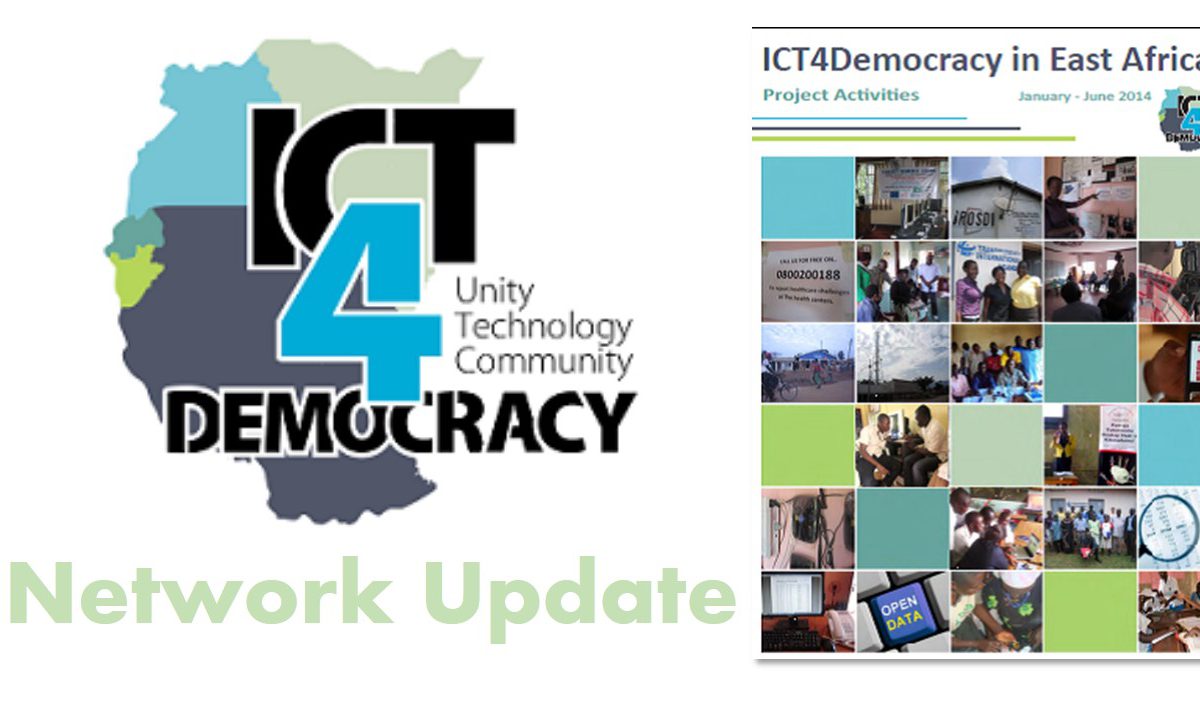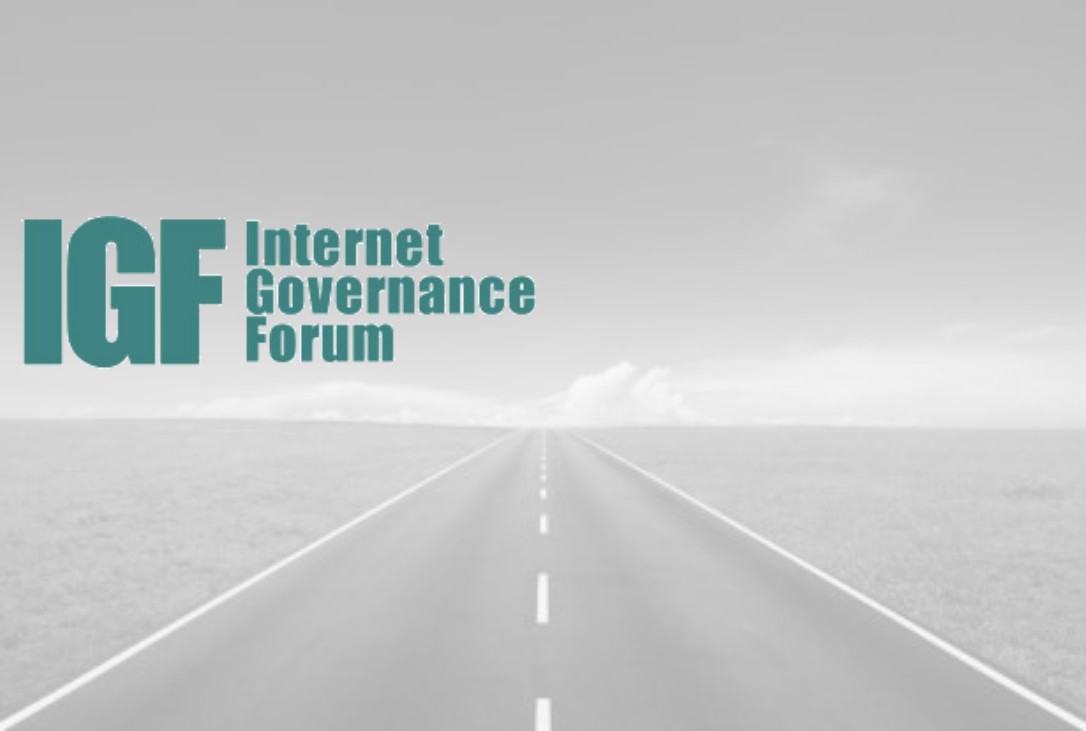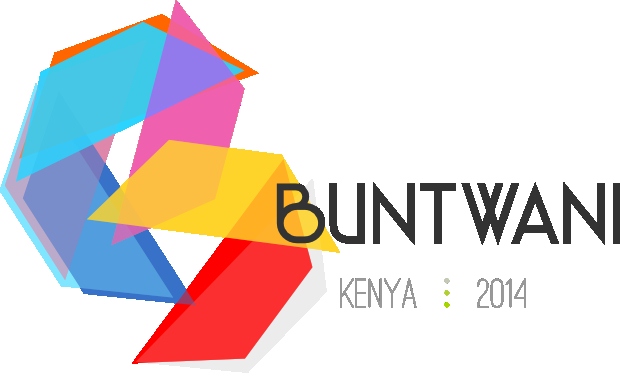By Lillian Nalwoga
Between March and July 2014, the Collaboration on International ICT Policy in East and Southern Africa (CIPESA) in partnership with the Northern Uganda Media Centre (NUMEC) launched a project to document service delivery failures as a result of donor aid cuts to the Peace Recovery and Development Plan (PRDP) in Northern Uganda.

Focusing on the districts of Gulu, Nwoya and Amuru, service delivery failures under the education, health and infrastructure sectors were documented through Information and Communication Technology (ICT). Shoddy works, lack of coordination among project implementers, incomplete projects and inadequate funds are some of the challenges affecting the success of the PRDP.
Launched in 2007 in consultation with development partners, the PRDP was set up to consolidate the state authority, rebuild and empower communities, revitalise the economy and promote peace building and reconciliation in post-conflict Northern Uganda. The plan covers 55 districts and 9 municipalities. Although implementation begun in 2009, the PRDP has been dogged by corruption scandals and inadequate information on progress. The second phase of the PRDP which began in July 2012 and is due to end in June 2015, has faced similar challenges culminating in the suspension of support from key donors as a result of misappropriation of funds by officials under the Office of the Prime Minister.
In the education sector, the CIPESA-NUMEC documentation found that one school – Awoonyim Primary School in Patiko Sub County Gulu district – is reported to have received funding for the construction of a teacher’s housing unit, two classroom blocks and supply of sixty desks in the PRDP of 2009/2010. However, during field visits it emerged that the classrooms were poorly constructed while the housing unit construction was abandoned midway by the contractor without any explanation to the school administration. In another case, a vehicle meant to assist the District Education Officer in monitoring school activities was never procured despite a budget allocation of 80 million Uganda Shillings (UGX) under the 2010/2011 financial year under the PRDP.
Under the health sector, Koro Abili Health Centre II and Purongo Health Centre II in Gulu and Nwoya districts were reported to have also been affected. Although an outpatient unit had successfully been built at the Koro Abili Health Centre II, it was under staffed and the center porter was acting as the administrator on behalf of the Assistant Nursing Officer. Meanwhile, the construction of a maternity ward worth UGX 80 million at Purongo Health Centre II had been abandoned midway by the contractor despite having been fully paid.

On the transport infrastructure front, the construction of the 70 kilometre (km) road linking Guru-Guru to Pabbo, a main entry in Lamogi Sub County in Amuru district, had been abandoned by the contractor. The road is impassible during the rainy season thus cutting off the communities from each other. The contractor had also not paid off locals who were employed during the construction. Atkinson Ojara, the Sub-County Chairman of Lamogi, attributed the road construction challenges to poor communication between sub-county officials.
The overall objective of the CIPESA and NUMEC partnership is to make Public Sector Information (PSI) more accessible and reusable by stakeholders such as citizens, civil society and the media in Northern Uganda. This involves repackaging information availing it online, in print and over radio,generating evidence on the impact of information access and use on transparency and accountability.
Other activities have included building ICT skills and knowledge for citizens and journalists to access and gainfully use open data and PSI to contribute to better service delivery; increasing interactions between citizens and leaders; and promoting greater access to PSI for citizens in Northern Uganda.
Watch the 15 minute documentary capturing the service delivery challenges under PRDP here. A picture story is also available here.
This work is supported by the Swedish Programme on ICTs in Developing Countries (SPIDER) and is part of the ICT4Democracy in East Africa project.
Uganda Gov’t Officials Trained in Using Right to Information Portal
By Ashnah Kalemera
On November 7, officials from 40 Uganda Government Ministries, Departments and Agencies (MDA) were trained in promoting citizens’ right to information, including through the use of the Ask Your Government portal.
Launched on August 14, 2014, www.askyourgov.ug allows Ugandan citizens to directly send requests for information to information officers in Government MDAs. Responses to the requests are relayed directly to the email address of the person who makes the requests and are also publicly displayed on the portal. In accordance with Uganda’s Access to Information Act of 2005, the portal promotes citizens’ right to information in support of transparency, accountability and good governance.
The dialogue aimed to increase the number of information officers registered on the portal and encourage the officers to respond to information requests within 21 days as required by the law.

Currently there are 70 MDAs registered on the AskYourGov portal and so far 45 requests for information have been logged through the portal, of which 20 have received responses. Only 8 of the 20 responses have been classified as successful by requesters.
In an effort to encourage the Officers to improve the response rate, Sylvia Biraahwa, the Principal Information Officer, Directorate of Information and National Guidance, Office of the Prime Minister (OPM), urged officials to adopt internal practices that promote transparency and accountability without waiting for directives to be handed down from the central government. Ms. Biraahwa commended the Lands Ministry for taking positive steps in information disclosure by developing an access to information manual, setting a great example for other MDAs to follow suit.
However, one official argued that the best way to motivate information officers to respond to right of information requests was through a top-down approach. “OPM and the Directorate of Information should demand that there be sections in annual Ministerial Policy statements regarding what has been done and achieved in the area of ATI [access to information],” he said. This would “motivate and give support” to low-ranking officers to act in compliance with the law.
The dialogue, which was organised by the OPM in partnership with CIPESA and the Africa Freedom of Information Centre (AFIC) also sought to sensitise officials in emerging media platforms for increased openness and citizen engagement. Ms. Juliet Nanfuka Nakiyini of CIPESA said cabinet, in May 2013 directed the Ministry of Information and Communications Technology (ICT) to ensure that every MDA opens a Twitter and Facebook account to improve communication with the public. This directive, together with the Websites and Social Media standards and guidelines developed by the National Information Technology Authority (NITA), provided immense opportunities for attracting more citizens into the democratic process and building accessible information repositories.
Ms. Nanfuka urged officials to exploit the push and pull symbiotic relationship that can exist between government and citizens through askyourgov.ug and MDAs’ social media platforms. For instance, they could initiate discussion topics on Facebook and Twitter on readily available information and invite discussants to send requests through the AYG website for information to inform the debate. She encouraged the MDAs to share on their websites and social media platforms the queries they receive via AskYourGov and the responses they provide.
Simon Mayende, the Director of Information and National Guidance, urged the participating MDAs to also utilise Public Education Programmes in print and broadcast media spaces for citizens sensitisation on RTI as provided for under the government communications strategy.
Mr. Mayende said the Uganda Law Reform Commission was working to identify laws with provisions that contradict the access to information law so as to draft progressive amendments for tabling before parliament.
Read more about the day’s activities here. Visit the portal on www.askyourgov.ug to register and make information requests. See also the Ask Your Government Uganda User Guide and Information Sheet.
Follow requests and responses on social media:
Facebook: www.facebook.com/askyourgovug
Twitter: @AskYourGovUg
ICT4Democracy in East Africa Network Activities Update
By Juliet N. Nanfuka
The network of seven partners (profiles) unified under the ICT4Democracy in East Africa initiative have since 2011 jointly worked to enhance the capacity of citizens and governments in using ICTs to promote human rights, good governance and citizen participation.
Between January and June 2014, the partners each undertook activities that aimed to support the inclusivity of citizens in transparency,

accountability and service delivery monitoring through the use of Information and Communication Technologies (ICTs) in Kenya, Tanzania and Uganda. These activities are increasing citizens’ participation in decision-making processes and strengthening democracy in the region.
The partners have each created unique approaches to encouraging citizen participation through mobile short message services (SMS), FM radio, social media such as Facebook and Twitter, crowd-mapping platforms and a toll free call centre. Research has also been conducted by some partners on the knowledge and perceptions associated with ICT use and the flow of information between and among citizens and government.
As part of the projects, partners have pursued direct community engagement with grassroots based organisations, local governments, media, policy makers, voluntary social accountability committees (VSACs), academia, the tech community, and civil society organisations in the use and promotion of ICTs in governance.
In brief, some of the activities pursued by the partners include the below:
- In Western Uganda the Toro Development Network (ToroDev) has engaged with various stakeholders and also utilised radio and social media to inform and encourage participation in service delivery monitoring and accountability.
- The Kenya Human Rights Commission (KHRC) tapped into its existing community of Human Rights Networks (HURINETS) to advocate for open governance, and the right to information.
- iHub Research is conducting research into the flow of information between citizens and government through ICT tools in a bid to understand whether the interaction supports service delivery, access to information, and combating corruptions – and how these interactions can be improved upon.
- The Collaboration on International ICT Policy in East and Southern Africa (CIPESA) has combined research, capacity building and advocacy on the roles that citizens, media and public officials can play in the pursuit of good governance.
- The Ugandan Chapter of Transparency International is supporting communities in northern Uganda to report and act on shortcomings in the public health services delivery. This has been accomplished through provision of a toll free line, social media campaigns and working with Voluntary Accountability Committees (VACs).
- Women of Uganda Network (WOUGNET) is working with Community Based Organisations (CBOs) and Voluntary Social Accountability Committees (VSACs) to empower women in the use of ICTs that can enable them to play a part in service delivery monitoring in northern Uganda.
- In Tanzania, the Commission for Human Rights and Good Governance (CHRAGG) is educating citizens on human rights and empowering them to use their phones to report human rights violations.
For more details, please see the full activity report of ICT4Democracy in East Africa network between January and June 2014.
CIPESA is the ICT4Decmoracy in East Africa Regional Coordinator
What does the future hold for the Internet Governance Forum?
By Juliet N. Nanfuka
As the dust settles following the ninth Internet Governance Forum (IGF) which was held in Istanbul, Turkey between 2 and 5 September, many questions remain lurking. The biggest being whether the IGF has made a strong enough case for its continued existence. The IGF currently has a mandate that takes it until 2015. The United Nations (UN) General Assembly is due to take a decision about its renewal at the beginning of December 2014.

In keeping with the IGF’s core principle of multi-stakeholder engagement, the 9th Internet Governance Forum brought together an assortment of internet policy stakeholders including multinational organisations, state representatives, civil society and internet enthusiasts. The theme of this year’s IGF was “Connecting Continents for Enhanced Multi stakeholder Internet Governance” and was explored through the lens of net neutrality, multilingualism, youth and social media, gender, policy development, stakeholder roles and other related issues.
In a series of workshops, book launches and open sessions, internet policies were discussed and how they relate and impact upon society, development, business, governance and democracy. While there was agreement on some issues, divergence remained when it came to discussions on where monetising the internet clashed with big data, privacy, surveillance, intermediary liability and net neutrality.
This year’s meeting saw over 3,000 delegates from across the world convene in a country currently battling with some of the controversial internet related issues such as surveillance, censorship, privacy and data protection under discussion at the IGF. According to the 2013 Freedom on the Net report, nearly 30,000 websites and social media accounts are blocked in Turkey for social or political reasons. But Turkish bureaucrats deftly skirted these issues in their opening and closing speeches. While mention was made of the state of Turkish internet freedom by delegates, it mostly remained a rumbling in the underbelly of the meeting. However, some light on Turkey’s internet freedom status was heavily discussed at the Internet Ungovernance Forum organised by Turkish civil society organisations to protest the country’s hosting of the meeting given their government’s internet rights violations record.
For many participants, NetMundial was still a key talking point and formed the basis of some of the IGF’s discussions including promoting multilingualism, collaborative multi-stakeholder models, gender and internet rights, minority rights online, child online protection, privacy and surveillance and developing relevant local content. NetMundial demonstrated that multi-stakeholderism is possible and consensus can be drawn even on the most contentious internet governance topics (see NetMundial statement).
NetMundial sought to deliberate on the Future of Internet Governance by crafting Internet governance principles and proposing a roadmap for the further evolution of the Internet governance ecosystem.
Even though the IGF has for the past nine years provided a platform for the debate and deliberation on the very issues that NetMundial dealt with, there have been limited discernible outcomes and impact measurements due to the nature and complexity of internet governance and its actors.
However, much like the constantly transforming internet, the IGF will have to re-asses its financial sustainability model to ensure its survival and position itself as a driver of best practices on internet governance. Part of this includes the production of outcome documents such as policy recommendations for voluntary adoption – a suggestion put forward by the European Commission – a key funder of the IGF. Such actions could help shake off the ‘talk shop’ cloak that has shadowed the IGF and position it as a platform for deliberation on global internet governance concerns with more discernible outcomes.
The Tenth IGF is scheduled to take place in João Pessoa, Brazil on 10 to 13 November 2015.
ICT4Democracy in East Africa Network to Participate in Inaugural Buntwani Conference
The ICT4Democracy in East Africa network will participate in the first Buntwani conference scheduled to take place October 7–8, 2014 in Nairobi, Kenya. The conference is aimed at exploring the potential of Information and Communication Technologies (ICTs) in strengthening citizen engagement and participation in Africa.
The network is made up of organisations pursuing projects that are tackling issues such as corruption, service delivery, respect for human rights, and civic engagement in Kenya, Uganda and Tanzania. The shared goal is to collaboratively leverage on ICTs as tools for promoting good governance and democratisation.
As the use of ICTs in East Africa grows steadily, driven by the availability of cheaper smart phones and the popularity of social media platforms, so does the opportunity through which to utilise these very tools and platforms as avenues for transparency and accountability in governance. In Kenya, Tanzania and Uganda, mobile access rates have grown to beyond 50% of the population – with Kenya reporting a 78% mobile access rate, Uganda (52%) and Tanzania (64%). Internet use has concurrently risen. Internet access in Kenya currently stands at 53% of the population, while Uganda stands at 22% and Tanzania (11%). It is upon this foundation that the ICT4Democrarcy in East Africa network pursues its work leveraging on tools including mobile messaging (short message services), FM radio, social media like Facebook and Twitter, toll free call centres, crowd sourcing platforms as well as direct community engagement.
The network is comprised of seven partner organisations including the Women of Uganda Network (WOUGNET), Transparency International Uganda (TIU), iHub Research (Kenya), the Kenya Human Rights Commission (KHRC), the Commission for Human Rights and Good Governance (Tanzania), the Collaboration on International ICT Policy in East and Southern Africa (CIPESA) and Toro Development Network (ToroDev). CIPESA is the regional coordinator of the network which is supported by the Swedish Programme for ICTs in Developing Regions (Spider) and the Swedish International Development Cooperation Agency (Sida).
Network partners primarily work with grassroots based organisations, local governments, policy makers, voluntary social accountability committees (VSACs), the tech community, civil society organisations and media in the use and promotion of ICTs in governance.
At Buntwani, the network partners will be sharing their experiences in sessions on technology for transparency, avenues for citizen participation, and the motivations and demotivations of using ICT tools for governance, among others.
Network project summaries
| Partner | ICT4Democracy in East Africa Project activity |
| CIPESA(ICT4Dem regional coordinator) | The ‘iParticipate Uganda’ project aims to catalyse the role of ICTs in citizens’ engagement and participation in governance. The project documents and publicises open governance, builds the capacity of media, public officials, citizens and other duty bearers in the use of ICTs for democracy, provides support to three grassroots ICT access centres and researches the ICT knowledge, practices and attitudes of citizens in Uganda. CIPESA is also undertaking an analysis of ICT legal and regulatory frameworks in Kenya, Uganda and Tanzania. |
| CHRAGG | CHRAGG has implemented a toll free Short Messaging Services (SMS) platform in Tanzania for citizens to utilise their mobile phones to lodge human rights violations and complaints. The project has targeted women and youth in its campaign which is also increasing awareness of human rights in the country. The campaign to popularise the SMS system includes radio talk shows, prime time TV and radio jingles, distribution of flyers, TV adverts as well as visual and performance acts through dance troupes. |
| iHub | iHub is exploring the interaction between governments and citizens through ICT tools in support of civic participation, service delivery, transparency, accountability and access to information. The insights are being sought in Kenya, Uganda and Tanzania through a series of field studies, focus group discussions, surveys, interactions with developers and literature reviews. The results of this work are expected to aid the implementation of initiatives that use ICT to monitor public services delivery, fight corruption and improve public sector transparency. |
| KHRC | The mentoring of grassroots based Human Rights Networks (HURINETS) in Kenya is key to KHRC’s project. The organisation is partnering with 10 HURINETS to increase their capacities to effectively use ICTs such as crowdmaps, blogs, Twitter and Facebook in their advocacy work and to increase their role in promoting human rights. |
| TIU | A toll free call centre forms the foundation of TIU’s Lira based project. Voluntary Accountability Committees (VACs) are playing the key role of monitoring health service delivery at health centres in remote areas in Lira and Oyam district in Northern Uganda. The project empowers citizens to demand social accountability of health workers in the region. TIU verifies reports of health service delivery challenges from VACs and the public received at the call centre through field visits before raising them with the respective authorities for remedial action. |
| ToroDev | Working with 15 rural advocacy forums and the Rwenzori Journalists Forum, ToroDev is motivating citizen activism in Western Uganda in pursuit of transparency and accountability monitoring. Local FM radio stations are used as hubs for information and knowledge sharing sourced through the internet (social media) and mobile phones (SMS) during which there is active engagement with local leaders and advocacy forum members on critical community issues. |
| WOUGNET | Northern Uganda is the focus area of this project which empowers the local communities in five districts (Apac, Kole, Oyam, Gulu and Amuru) to monitor good governance and service delivery through the use of radio stations, digital cameras, mobile phones, Facebook, Twitter, blogs and the crowd sourcing platform Ushahidi. The project primarily targets women in Community Based Organisations (CBOs) and women groups. |
The Buntwani conference (www.buntwani.org) will see the gathering of government officials, civil society organisations, the private sector, media and other sectoral players to share knowledge and information relating to citizen engagement and participation through ICTs. The conference will also provide a platform for technology innovators to showcase tools that are available for strengthening citizen engagement and participation as well as improvement of service delivery, and discuss with various stakeholders the strategies that have been used to make these tools a success.
Connect with ICT4Democract in East Africa online
Web: www.ict4democracy.org
Facebook: www.facebook.com/ict4dem
Twitter: @ICT4DemEA
Email: [email protected]
About CIPESA: ICT4Democracy in East Africa Regional Coordinator
The Collaboration on International ICT Policy in East and Southern Africa (CIPESA) is one of two centres established in 2004 under the Catalysing Access to Information and Communications Technologies in Africa (CATIA) initiative, which was mainly funded by the UK’s Department for International Development (DfID). CIPESA focuses on decision-making that facilitates the use of ICT in support of development and good governance. Besides the ICT4Democracy in East Africa project, CIPESA is spearheading the Open Net in Africa project (www.opennetafrica.org) to promote internet freedoms in a number of African countries, including Burundi, Ethiopia, Kenya, Rwanda, South Africa, Tanzania and Uganda. Under the Ask Your Government Uganda initiative (www.askyourgov.ug), CIPESA, in partnership with the Office of Prime Minister (OPM) Uganda and the Africa Freedom of Information Centre (AFIC) promotes citizen’s right to access to information.
| Collaboration on International ICT Policy in East and Southern Africa (CIPESA)Plot 156-158 Mutesa II Road, Ntinda, P.O. Box 4365, Kampala, Uganda; Tel: +256 414 289 502 | Email: [email protected] Website: www.cipesa.org | Facebook: www.facebook.com/cipesaug |Twitter: @cipesaug |

